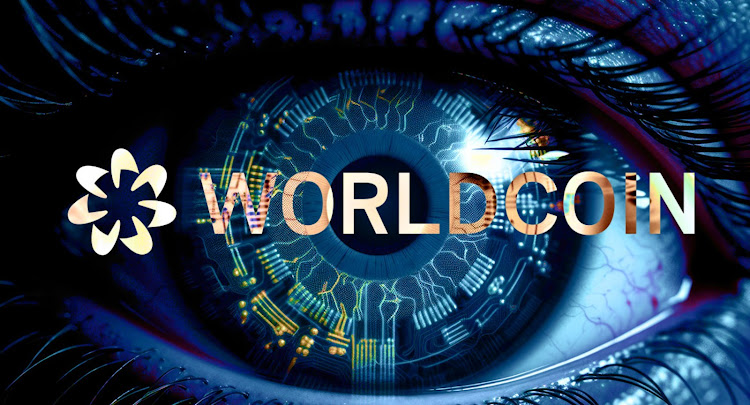
- Africa has experienced insane queues in malls and supermarkets, as people line up to acquire the free Worldcoin tokens
- Worldcoin is by far the most ambitious crypto project in the new crypto era, signing up over 2.3 million users in more than 120 countries in its beta testing stage
- Despite receiving free tokens, users are paying a higher price for potential risks of hacks and exploitation of their biometric data
- The proof-of-personhood is a core idea behind the project. It involves establishing that an individual is both unique and human
Since its launch on July 24, 2023, Worldcoin has taken the world by storm. It is by far the most ambitious crypto project in the new crypto era, signing up over 2.3 million users in more than 120 countries in its beta testing stage. The ID platform founded by OpenAI CEO Sam Altman, Alex Blania and Max Novendstern needs to scan eyeballs through an Orb to verify the identity of users, a development that appears rather threatening to privacy regulations across the globe.
Once user identity is verified, they receive a digital identity, a crypto token (WLD) and a crypto wallet app. Every human is eligible for a share of Worldcoins for simply being human, except in countries where legislation does not allow for the Worldcoin project mode of operation, e.g. the United States.
Read: The contradictory relationship between Blockchain technology and privacy
Why WorldCoin
The Worldcoin whitepaper outlines the following as the reasons for creating the platform;
- Provide an alternative for Bitcoin by offering a more widely distributed token to facilitate global transactions.
- Increase economic opportunity by giving Worldcoins to the general public.
- Scaling of a reliable solution to distinguish humans from AI (eyeball scan). Advances in AI have made it increasingly difficult to distinguish whether online activity, digital artwork, written text and virtually anything on the internet are from real humans or AI.
- Enable global democratic processes
- Create a potential path to AI-funded UBI (Universal Basic Income).
The Company behind the Worldcoin project, Tools for Humanity (TFH), has created the World App to complement the World ID and WLD token.
The proof-of-personhood is a core idea behind the project. It involves establishing that an individual is both unique and human. Once established, it gives the person the ability to assert they are real people without having to reveal their real-world identity.
What Worldcoin intends to solve
According to their white paper, there are three assumptions behind Worldcoin
- Proof of personhood is a necessary primitive missing in the digital world.
- Scalable and inclusive proof of personhood allows the aligning of incentives of all network participants around adding real humans to the network.
- In a world with increasingly powerful AI, a reliable way to issue global proof of personhood is through custom biometric hardware.
The positive side of Worldcoin looks flowery. However, there are risks that the creators are not open to addressing.
Privacy threats
Despite receiving free tokens, users are paying a higher price for potential risks of hacks and exploitation of their biometric data. The mass collections of biometrics (Iris scan), threaten privacy on a grand scale. The company can misuse the information it collects, especially if that data is stolen.
“Worldcoin intends to become the default World Digital ID and a global currency without democratic buy-in at the start,” says EPIC counsel Jake Wiener. “That alone is a compelling reason not to turn over your biometrics, personal information and geolocation data to a private company.”
Centralization threats
The United Kingdom, campaign group has also criticized the project, saying that it increases state and corporate control over people’s lives.
Additionally, the Worldcoin project has set aside 25 per cent of all Worldcoin tokens to the founders.
Worldcoin in Africa
Africa has experienced insane queues in malls and supermarkets, as people line up to acquire the free Worldcoin tokens. Most of the individuals claimed they did not understand anything about the concept of WLD. However, they were willing to scan their eyeballs if it meant getting free cash.
Worldcoin has demonstrated how easy it is to access data in Africa. Fewer questions are put forward about the purpose of the data is to be put into. However, Africans need to be educated on the value of data, considering that it is the new gold.
Read: Privacy regulations in the metaverse:A paradoxical problem
- SEO Powered Content & PR Distribution. Get Amplified Today.
- PlatoData.Network Vertical Generative Ai. Empower Yourself. Access Here.
- PlatoAiStream. Web3 Intelligence. Knowledge Amplified. Access Here.
- PlatoESG. Automotive / EVs, Carbon, CleanTech, Energy, Environment, Solar, Waste Management. Access Here.
- BlockOffsets. Modernizing Environmental Offset Ownership. Access Here.
- Source: https://web3africa.news/2023/07/28/news/scary-risks-in-the-worldcoin-biometric-proof-of-personhood-system/
- :has
- :is
- :not
- :where
- $UP
- 2023
- 24
- 25
- a
- ability
- About
- access
- acquire
- across
- activity
- adding
- addressing
- advances
- africa
- AI
- alex
- aligning
- All
- allow
- allows
- alone
- also
- alternative
- ambitious
- an
- and
- anything
- app
- appears
- ARE
- around
- artwork
- AS
- At
- basic
- Basic Income
- BE
- become
- behind
- being
- beta
- between
- biometric
- biometrics
- Bitcoin
- blockchain
- blockchain technology
- both
- by
- Campaign
- CAN
- Cash
- ceo
- claimed
- collections
- company
- compelling
- Complement
- concept
- considering
- control
- Core
- Corporate
- counsel
- countries
- created
- Creating
- creators
- crypto
- Crypto wallet
- Currency
- custom
- data
- Default
- democratic
- demonstrated
- Development
- DID
- difficult
- digital
- digital artwork
- Digital ID
- digital identity
- digital world
- distinguish
- distributed
- does
- e
- easy
- Economic
- eligible
- EPIC
- Era
- especially
- established
- establishing
- Every
- Except
- experienced
- exploitation
- facilitate
- far
- fewer
- following
- For
- Forward
- Founded
- founders
- Free
- from
- General
- general public
- getting
- gives
- Giving
- Global
- globe
- Gold
- Group
- hacks
- Hardware
- Have
- having
- higher
- How
- However
- HTTPS
- human
- Humanity
- Humans
- ID
- idea
- Identity
- if
- in
- Incentives
- Inclusive
- Income
- Increases
- increasingly
- individual
- individuals
- information
- INSANE
- intends
- Internet
- into
- issue
- IT
- ITS
- jpg
- July
- Kingdom
- launch
- Legislation
- Line
- Lives
- LOOKS
- made
- Mass
- max
- meant
- Metaverse
- million
- missing
- Mode
- more
- most
- necessary
- Need
- needs
- network
- New
- new crypto
- of
- offering
- on
- once
- online
- open
- OpenAI
- operation
- Opportunity
- or
- outlines
- over
- Paper
- participants
- path
- paying
- People
- people’s
- per
- person
- personal
- platform
- plato
- Plato Data Intelligence
- PlatoData
- positive
- potential
- powerful
- price
- primitive
- privacy
- private
- project
- proof
- public
- purpose
- put
- Questions
- rather
- real
- real world
- reason
- reasons
- receive
- receiving
- regulations
- relationship
- reliable
- reveal
- risks
- Sam
- Sam Altman
- saying
- says
- Scale
- scan
- set
- Share
- side
- signing
- simply
- solution
- Stage
- start
- State
- States
- stolen
- Storm
- system
- taken
- Technology
- Testing
- than
- that
- The
- the information
- the metaverse
- the world
- their
- There.
- they
- threaten
- three
- Through
- to
- token
- Tokens
- tools
- Transactions
- TURN
- understand
- unique
- United
- United Kingdom
- United States
- Universal
- Universal basic income
- User
- users
- value
- verified
- verify
- virtually
- Wallet
- Way..
- were
- whether
- white
- white paper
- Whitepaper
- widely
- willing
- with
- without
- world
- written
- Your
- zephyrnet













